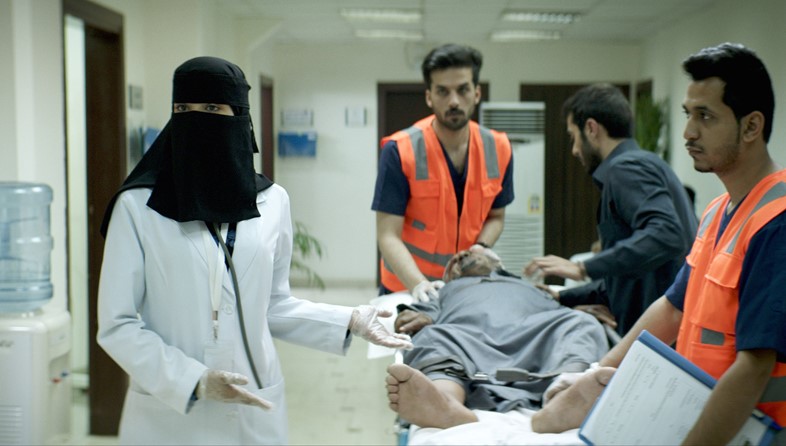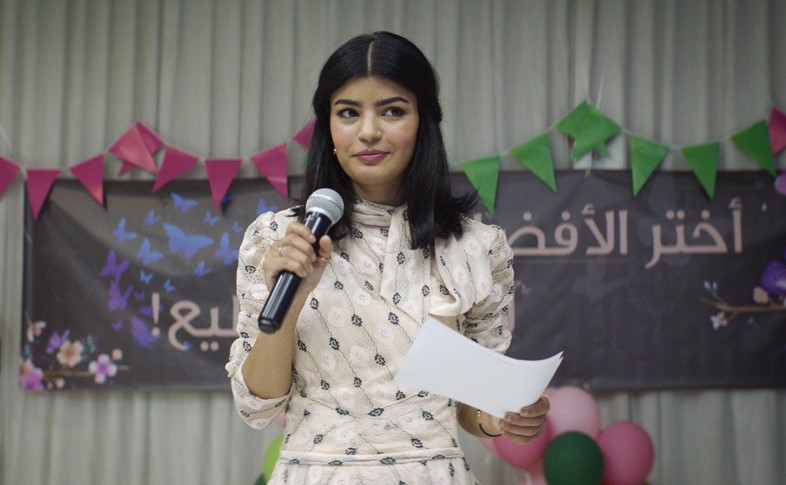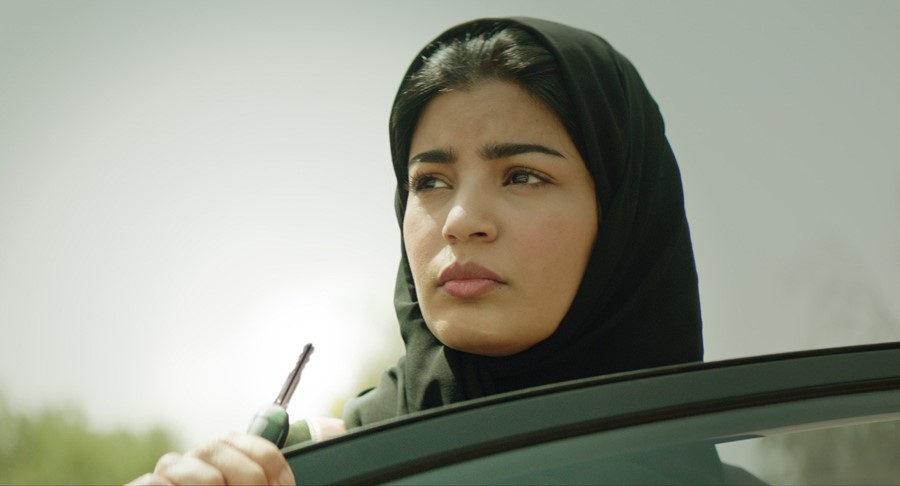Haifaa al-Mansour, whose latest project The Perfect Candidate is available to rent online from today, tells Megan Wallace why she became passionate about telling women’s stories
Back in 2012, Haifaa al-Mansour became the first Saudi Arabian woman to direct a feature film with Wadjda, a tale about a young girl in Riyadh who becomes fixated on buying a green bicycle, despite it defying social custom. Exploring gender dynamics on a micro scale, it provided first-hand insight into what it’s really like to be a Saudi woman, outside of Western stereotypes. After the critical success of Wadjda, she made the pivot to English language films, first Mary Shelley and then Nappily Ever After, but maintained a dedication to platforming women’s stories.
Her latest project, The Perfect Candidate, which is available to rent online from today, sees her return to Saudi Arabia at a time when the position of women is – at surface level at least – rapidly changing. The film’s opening scene shows protagonist Maryam (Mila Al Zahrani) driving a car, something which was illegal up until 2018. Behind the camera, there were significant changes to the filmmaking process too. Al-Mansour not only directed Wadjda at a moment when cinema had been banned for decades, but when men and women were legally required to be segregated in public. To make the earlier film, she avoided negative attention while filming on the streets of Riyadh by hiding in the back of a van.
But like Wadjda, The Perfect Candidate is a story of feminine resistance: doctor Maryam accidentally-on-purpose ends up running for office in municipal elections, becoming the first woman to do so and challenging sexist attitudes from men and women alike in the process. For Al-Mansour, this interest in women’s stories is a natural product of her upbringing. “I grew up in Saudi Arabia when there was a real emphasis on excluding women from the public space. There was this idea that women’s voices shouldn’t be heard,” Al-Mansour explains. “As a young woman, I wanted to exist. A lot of women have something similar in one way or another: a need to be respected and to present. That is why I became passionate about telling women’s stories.”

It was important for Al-Mansour to show that while things are changing for women in Saudi Arabia, it takes time for popular attitudes to catch up with legislation. Maryam must legally rely on her father to grant her permission to travel abroad, and, while women can nominally do a lot more than in previous years, they’re still not always respected. We see a male patient refuse to receive treatment from Maryam based on her gender, her being undermined by male colleagues at work and members of the public grappling with her decision to run for office. “Now it is hard for women in the Middle East to run for public office, even if it is allowed,” says Al-Mansour. “This isn’t just in the Middle East, even in the West. As a female filmmaker I face [difficulties to do with my gender] even on set. People second guess women and don’t believe in them as much as they should.”
This attention to the day-to-day realities of women is created through the use of a documentary-like style, which opens a lens to wider Saudi society – both the good and the bad. Al-Mansour explains that this stems from the influence of Italian cinema, as well as her personal familiarity with the country. “Italian neorealism is really influential to me when I’m working in Saudi Arabia. It’s almost like a documentary in that you want to capture a place and who they are without trying to stylise it,” she explains. “In Saudi Arabia I have such an intimate relationship with the subjects and the place, so people can really experience the country first hand through my films.”

But while Italian neorealism was often charged with being gratuitously bleak, Al-Mansour wants to deliver her message with a more even hand. Maryam’s father (Khalid Abdulrhim) is liberal-minded and supportive, not the stereotype of Middle Eastern men that we might see in Western media, and patriarchal attitudes are shown as belittling and painful to women, of course, but also skewed as nonsensical. For Al-Mansour it was necessary to reflect the realities for women in her country but to keep her audiences, in both the Middle East and in the West, entertained. “Comedy is a really important way for people to put their guard down and accept your message,” she explains. “If you preach to people without entertaining them, it’s not going to be as effective. I see myself as an entertainer and I would ultimately love for people to enjoy my stories.”
Much of the film’s energy emanates from musical interludes throughout, provided by Maryam’s father who is a wedding musician by trade. While for Western audiences this might seem innocuous, music and musical concerts have historically been disapproved of by Saudi society, and we see Maryam’s father court backlash and concert cancellations. For Al-Mansour, exploring the changing role of music in Saudi culture was almost as important as looking at the experience of women; a way of stressing that the return of the arts in Saudi Arabia could bring about the social changes she ultimately wants to see. “To create more empathy in a culture, you really need the arts. That’s what shapes the heart of a nation and without it you can’t have a nation that will prosper,” she says. “I’m really excited to see film and music coming back to Saudi Arabia, people don’t yet understand how much they will change the culture and transform it.”
The Perfect Candidate’s theatrical release has been postponed due to Covid-19. However, it is now available to rent on Curzon Home Cinema, BFI Player and Modern Films.
